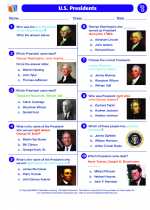Early Life and Education
Woodrow Wilson was born on December 28, 1856, in Staunton, Virginia. He grew up in the South during the Civil War and Reconstruction. Wilson attended Princeton University, where he graduated in 1879. He went on to study law at the University of Virginia and later earned a Ph.D. in political science from Johns Hopkins University.
Political Career
Wilson entered politics in the early 20th century and served as the President of Princeton University from 1902 to 1910. In 1910, he was elected Governor of New Jersey, and his progressive policies gained national attention. In 1912, Wilson ran for President as a Democrat and won the election, becoming the 28th President of the United States.
World War I and the League of Nations
During Wilson's presidency, World War I broke out in Europe. Initially, Wilson maintained a policy of neutrality, but as the war progressed, he sought to broker peace and proposed his Fourteen Points for a just and lasting peace. After the war, Wilson played a key role in the Treaty of Versailles and the establishment of the League of Nations, an international organization aimed at promoting world peace and cooperation.
Legacy
Wilson's presidency left a lasting impact on American politics and international relations. His idealistic vision for a new world order and his advocacy for self-determination and collective security laid the groundwork for future diplomatic efforts and shaped the course of the 20th century.
Study Guide
- Where was Woodrow Wilson born?
- What were the key points of Wilson's Fourteen Points?
- What was the League of Nations and why did Wilson advocate for its establishment?
- How did Wilson's presidency impact American politics and international relations?
- What were Wilson's contributions to the field of education before his presidency?
[Woodrow Wilson] Related Worksheets and Study Guides:
.◂Social Studies Worksheets and Study Guides Fourth Grade. U.S. Presidents

 Worksheet/Answer key
Worksheet/Answer key
 Worksheet/Answer key
Worksheet/Answer key
 Worksheet/Answer key
Worksheet/Answer key
 Worksheet/Answer key
Worksheet/Answer key
 Worksheet/Answer key
Worksheet/Answer key
